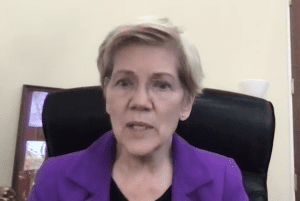Who is a member?
Our members are the local governments of Massachusetts and their elected and appointed leadership.

U.S. Senator Elizabeth Warren met with local leaders via Zoom on Jan. 30 to show her support and hear their concerns about the recent OMB memos.
States and municipalities are at least temporarily protected from a broad freeze of federal funding after a U.S. District Court judge in Rhode Island found in favor of 22 states and the District of Columbia in a legal action to block the freeze.
Under the judge’s restraining order, issued late last Friday, the Trump administration cannot “pause, freeze, impede, block, cancel, or terminate” taxpayer money already allocated by Congress.
The 13-page order from Judge John McConnell does not specify an expiration date but says it is in effect “until this Court rules on the States’ forthcoming motion for a preliminary injunction, which the States shall file expeditiously.”
The Trump administration set off a frenzy late on Jan. 27 when it issued Memorandum M-25-13 ordering federal agencies to identify and “complete a comprehensive analysis” of all federal financial assistance “programs, projects, and activities” to ensure they are “consistent with the President’s policies and requirements.”
The directive from the Office of Management and Budget would affect $3 trillion in loan, grant and financial assistance programs from the federal government nationwide, including funds for state and local governments, such as Community Development Block Grants, school meals, and health, education, public safety and climate programs.
A follow-up “Q&A” document provided hours later by the OMB said the temporary halt in funding was not “across-the-board” and would not affect direct benefit programs such as Social Security, Medicare, Medicaid, SNAP, funds for small businesses and farmers, Pell grants, Head Start, and rental assistance.
Within 24 hours, a U.S. District Court judge issued an administrative stay to temporarily halt the freeze, which was quickly followed by a terse, two-sentence rescission of the M-25-13 memo from the OMB.
In a statement issued moments later, however, White House Press Secretary Karoline Leavitt said, “The Executive Orders issued by the President on funding reviews remain in full force and effect and will be rigorously implemented by all agencies and departments.”
She said the OMB’s rescission of M-25-13 “should effectively end the court case,” but that there will be “more executive action” in the coming weeks and months “to end the egregious waste of federal funding.”
In the 23-party suit in Rhode Island, Leavitt’s statement was introduced as evidence that the administration intended to pursue its funding freeze regardless of the administrative stay, which resulted from a lawsuit brought by Democracy Forward and other nonprofit groups and was due to expire today.
Judge McConnell’s order called out Leavitt’s statement and required the Trump administration not to reintroduce the freeze “under any other name or title.”
McConnell wrote that, “Congress has not given the Executive limitless power to broadly and indefinitely pause all funds that it has expressly directed to specific recipients and purposes, and therefore the Executive’s actions violate the separation of powers.”
McConnell’s order doesn’t block the Trump administration from continuing its review of federal expenditures, but it does prohibit them from defunding programs that fail their tests.
The White House has said it intends to defund programs that aren’t in alignment with a half dozen executive orders issued by President Donald Trump since his inauguration, but the White House offered scant details on what funding could be in jeopardy.
“The use of Federal resources to advance Marxist equity, transgenderism, and green new deal social engineering policies is a waste of taxpayer dollars that does not improve the day-to-day lives of those we serve,” the OMB’s M-25-13 memo stated.
The OMB memo listed the following executive orders as a basis for its action: Protecting the American People Against Invasion; Reevaluating and Realigning United States Foreign Aid; Putting America First in International Environmental Agreements; Unleashing American Energy; Ending Radical and Wasteful Government DEI Programs and Preferencing; Defending Women from Gender Ideology Extremism and Restoring Biological Truth to the Federal Government; and Enforcing the Hyde Amendment.
The M-25-13 memo gave federal agencies until Feb. 10 to submit to OMB “detailed information on any programs, projects or activities subject to this pause.”
The OMB’s memo triggered panic among stakeholders and programs that rely on federal funds, as well as a number of legal actions. Massachusetts Attorney General Andrea Campbell was co-lead on the multi-state push filed in Rhode Island to halt the freeze.
The judge’s ruling “reaffirms that the President cannot unilaterally take away federal funding, especially resources that our kids, seniors, and economy rely on,” Campbell said in a statement.
Connecticut Attorney General Peter Tong noted in a statement, however, that “these threats are evolving and far from over.”
In addition to Massachusetts, Connecticut and the District of Columbia, the plaintiffs in the case were the states of Arizona, California, Colorado, Delaware, Hawaii, Illinois, Maine, Maryland, Michigan, Minnesota, Nevada, New Jersey, New Mexico, New York, North Carolina, Oregon, Rhode Island, Vermont, Washington and Wisconsin.
The National League of Cities has published a “Presidential Actions Summary: Impact to Local Governments” identifying potential outcomes of the freeze.
The MMA and its federal and state partners are closely following this developing story, and will continue working to provide the latest details to members.